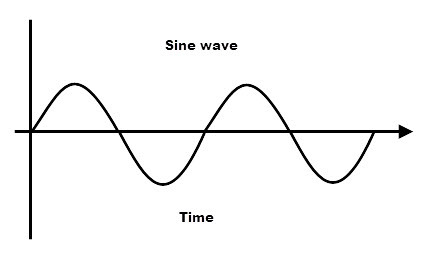Функция sinh () в C ++ STL
Опубликовано: 18 Февраля, 2022
Sinh () - это встроенная функция в C ++ STL, которая возвращает гиперболический синус угла, заданного в радианах.

Синтаксис:
sinh (тип_данных x)
Параметр: функция принимает один обязательный параметр x, который указывает гиперболический угол в радианах. Параметр может иметь тип данных double, float или long double.
Возвращаемое значение: функция возвращает гиперболический синус аргумента. Если величина результата слишком велика для представления значением возвращаемого типа, функция возвращает inf .
Program 1:
// C++ program to demonstrate the// sinh() function#include <bits/stdc++.h>using namespace std; int main(){ double x = 4.1; double result = sinh(x); cout << "sinh(4.1) = " << result << endl; // x in Degrees double xDegrees = 90; x = xDegrees * 3.14159 / 180; result = sinh(x); cout << "sinh(90 degrees) = " << result << endl; return 0;} |
Output:
sinh(4.1) = 30.1619 sinh(90 degrees) = 2.3013
Program 2:
// C++ program to demonstrate the// sinh() function#include <bits/stdc++.h>using namespace std; int main(){ int x = -4; double result = sinh(x); cout << "sinh(-4) = " << result << endl; // x in Degrees double xDegrees = 90; // convert to radians x = xDegrees * 3.14159 / 180; result = sinh(x); cout << "sinh(90 degrees) = " << result << endl; return 0;} |
Output:
sinh(-4) = -27.2899 sinh(90 degrees) = 1.1752
Ошибки и исключения: функция не возвращает соответствующую функцию для вызова ошибки, когда в качестве аргумента передается строка или символ.
Below programs illustrate the errors and exceptions of sinh() method:
Program 3:
// C++ program to demonstrate the // sinh() function when a string is passed#include <bits/stdc++.h>using namespace std; int main(){ string x = "gfg"; double result; result = sinh(x); cout << "sinh(x) = " << result << endl; return 0;} |
Выход:
prog.cpp: 14: 20: ошибка: нет соответствующей функции для вызова 'sinh (std :: __ cxx11 :: string &)' результат = sinh (x);
Program 4:
// C++ program to demonstrate the sinh()// function When argument is too large#include <bits/stdc++.h>using namespace std; int main(){ double x = 3000.0; double result = sinh(x); cout << "sinh(x) = " << result << endl; return 0;} |
Output:
sinh(3000.0) = inf